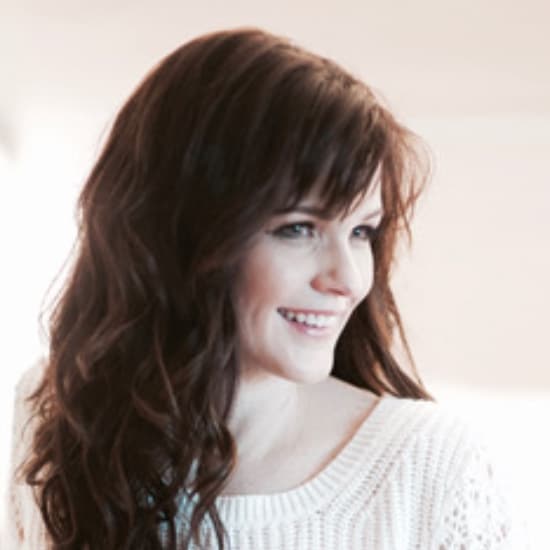Contents
Hello! Who are you?
I’m Teresa Alesch and I’m from a small town in northwest Iowa, raised by the absolute best parents and along with three pretty okay siblings (🤪kidding, kidding – they’re awesome, too), and now reside just 30 miles east with my husband, Cody, our two kids, Sacha-16 and Teague-14, and our four-legged canine child, Molly.
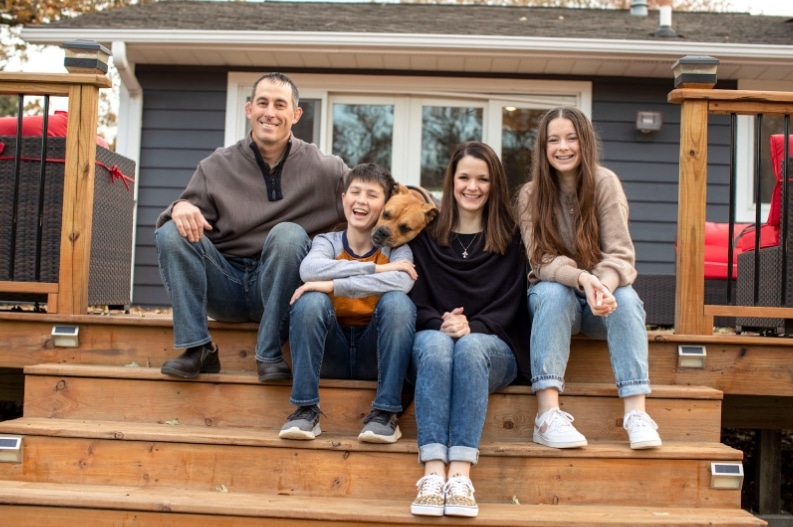
I love all things literature, art, music, health, and fitness, and enjoy exercising and taking ice baths (yes, you read that right—it started out as a challenge). My favorite time spent is the time with my family and watching my kiddos perform and compete in their academics, arts, and athletics.
Today, I am a Certified High Performance Coach, speaker, and author of Broken to Brave. Why this career? Passion. When we experience chronic stress, overwhelm, fatigue, and burnout, important areas of our lives unravel (health, relationships, productivity, task competency, etc.), draining us from truly living life and experiencing joy.
My passion is in helping high-achieving, hard-working women “Stress Less and Live More.” I help them take back control of their time, energy, productivity, and overall health and well-being through my Stress Less Live More program and high-performance coaching.
Before owning my own business, a health battle resulting in a referral to palliative care led me to resign from my 16-year career in education and school administration and take time off to focus on my health and family. Once back on my feet a few years ago, instead of going back into education, I pivoted into remote high-ticket sales, quickly moving from manager to director. It didn’t take long to realize I was out of alignment. I had so much to offer and could help people directly, according to my values. I wanted to live and lead with purpose.
So, my husband and I started our own company, providing motivational speaking and both high-performance and internal leadership coaching. We work with individuals, groups, and teams and have recently started working with students again. Currently, though, we are creating a program for parents called “Accidentally Disengaged: The Path to Becoming Intentional About What (WHO) Matters Most.” We only get one shot with our children.
Am I happy? Today, I am most definitely happy. I’ve risen above my circumstances and found the greatest joy in being present in the moment with my family and the people I choose to surround myself with. But “this” (happiness, life, goals, dreams) is not a destination, it’s a journey. I can say that I’ve found the tools and strategies I need to dance with adversity and walk off the dance floor holding my head higher than I did when my rock bottom “adversity” struck.
What is your struggle and when did it start?
My more recent struggle began with a diagnosis of cancer, and then evolved through a host of other traumas and physical, emotional, and mental battles. It wasn’t just the adversity, though. The pillars of my personality are deeply rooted…and involve a stubborn, independent, and highly sensitive child who felt like she never truly fit in.
I’ve always had multiple talents and passions—Jill of all trades, master at none, I guess? I couldn’t choose just one nor accept the traditional pathway through life. Wanting to experience it all, I’ve always strived toward something more. A calling, perhaps? As a young adult, it was confusing, isolating, and almost debilitating.
Without revealing who or exactly what, there was one particular individual in my past who had an effect on me that made me want their approval. And I believe that in part, this elusive pursuit of meaningless validation led me on a journey of self-discovery that colored my personality in more ways than one. But it also stunted my growth at the same time, making me self-conscious of the fact that I was a “horse of a different color.”
Perhaps many of us actually feel this way and I’m not so odd, after all? It’s fascinating how the facets of our personalities influence our journey. As for me, I believe not understanding and loving what set me apart led me on detours and self-degradation pit stops along the way. Not knowing which way was right, I did my best to fit into the “traditional” life route.
Back to more recent issues—they ebb and flow, a dance of depression, social anxieties, maybe a superhero complex, and for a brief but pivotal spell, suicidal ideation into action.
Let’s get to the heart of it, shall we?
In 2011, an aggressive, estrogen-driven breast cancer found me. I was in the midst of transitioning into the principalship early in my career. By the time we caught it, it was stage 3 and required a comprehensive and equally aggressive approach, beginning with chemotherapy to shrink the tumors before surgery. The first several weeks of chemo, I couldn’t eat and when I did, I struggled to keep it down. Everything tasted awful, even water. It also made me feel fat (bloated) and tired, and of course, I lost my hair. I kept working through most of it because I was too prideful to slow down.
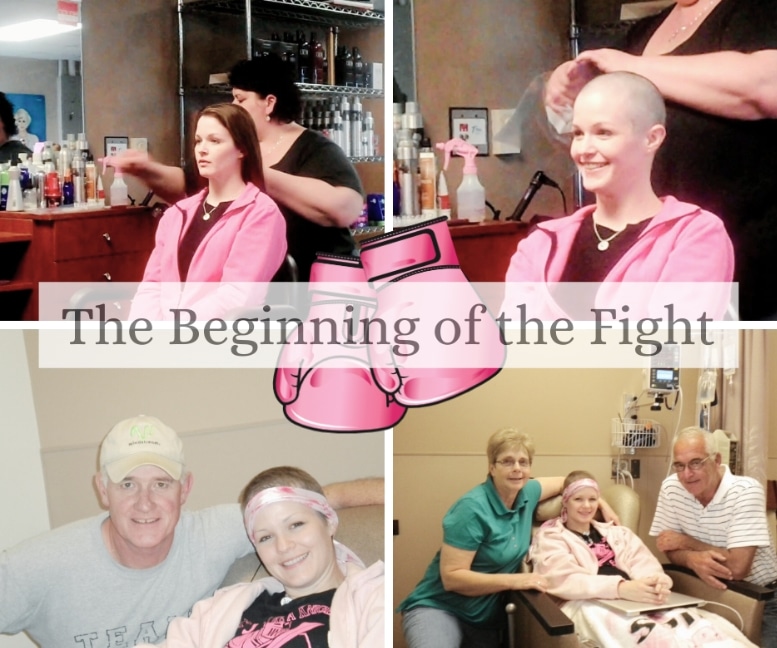
After about four months of chemo, I had a double mastectomy and placement of breast implants, involving an expansion process where I felt an excruciating pain that knocked the wind out of me during each session we filled the expanders.
I could barely walk out of the clinic, and it took 24 to 48 hours to subside. That excruciating pain made me question whether or not “looking feminine” was worth it. These were the first of nine surgeries that would take place over the next nine years.
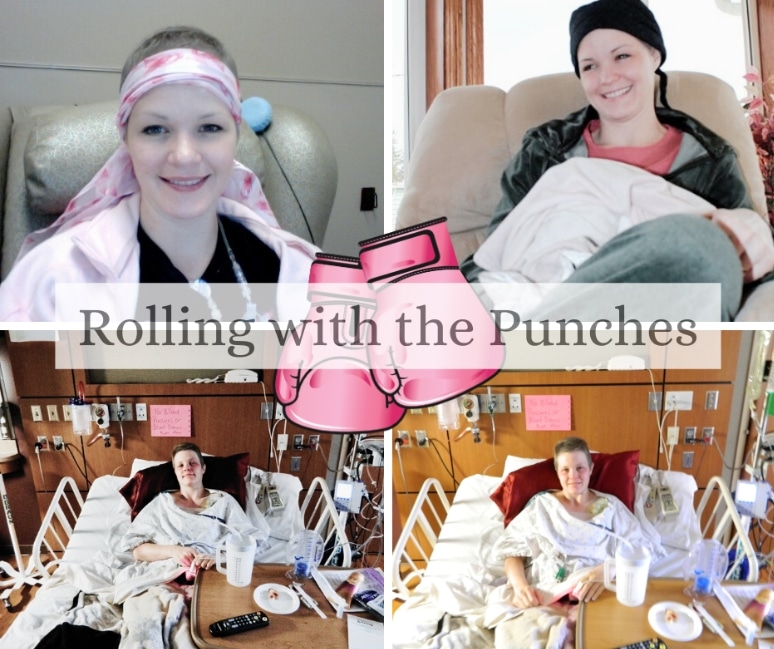
During my surgery, an unreal circumstance transpired—my dad was in the very same hospital, going through his own tests. He would also be diagnosed with cancer, stage 4 non-hodgkin’s lymphoma, just six months after me.
This likely happens more than we realize, but back then, cancer stories weren’t as pervasive or public. For us, it was surreal. The beginning of a string of traumas in my family that came to define us as fighters.
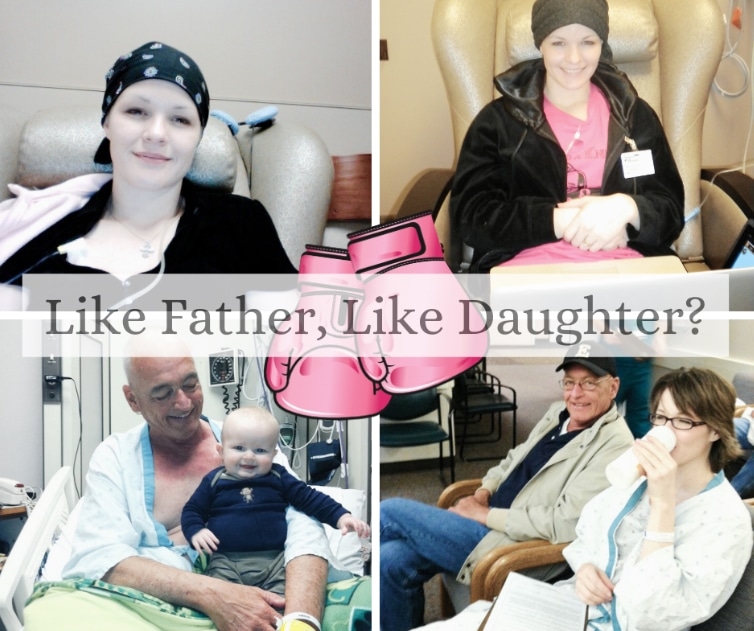
Throughout all of this, I presented myself as that fighter, a superhero. In my mind, my students, staff, husband, and kids counted on my strength. I set out to educate throughout my journey—writing, teaching, and sharing. My students even created a Team Alesch Facebook group for me to provide updates. They organized pinkouts and benefits in my honor. They literally colored the district pink. It brings tears just remembering.
Although I did share some of the vulnerable moments, I retreated, and mostly overshadowed the “darkness” with grit, smiles, and perseverance. I stopped short of truly processing the turmoil beneath the surface. I buried it.
Through it all, I was still a mom, a wife, a daughter, a principal… I had to keep going.
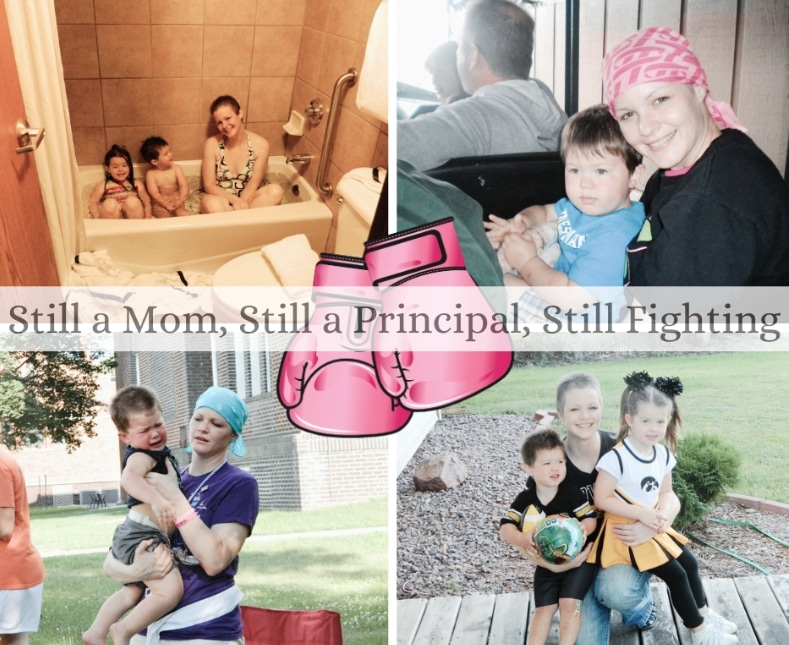
Remember that I felt different? Cancer brought this back. Up until that point, I had happily settled in as a school principal, finally in my element, working with teachers, students, parents, and community, striving together to create a culture of student engagement in the arts, academics, and athletics. I “fit in” here. Educational leadership suited me.
More and more, I felt “less than” in a diseased body. Damaged. Broken. Not good enough. Now enter “social anxiety.”
In all this, I haven’t even addressed my fears about my mortality. Mainly because they were in the shadows, only coming out at night to haunt me, when everyone else went to sleep.
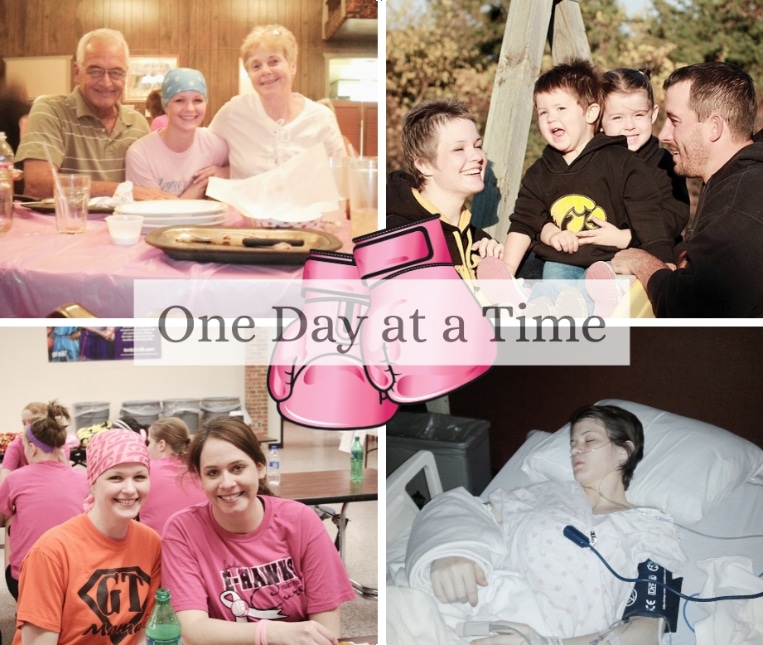
Eight months after diagnosis, I moved on to the final stage of treatment, radiation. Besides fatigue, this was the most uneventful phase, as though preparing me for what was yet to come. And come it did. About 22 days after radiation, at Christmas time, in my abdomen, I started feeling pressure, pain, and a growing sense of fear. Tumors. Giant ones.
Soon after, I was slated for an emergency surgery where I wasn’t sure if I would wake up still a woman, in the way that mattered as a mother. The cancer had taken my hair. It had taken my breasts. It had put me through hell. It put me on medications that made me feel awful. It was this sick affair—I went to bed with it, woke up with it, it stole my time and my heart. Was it going to take my choice as a mother?
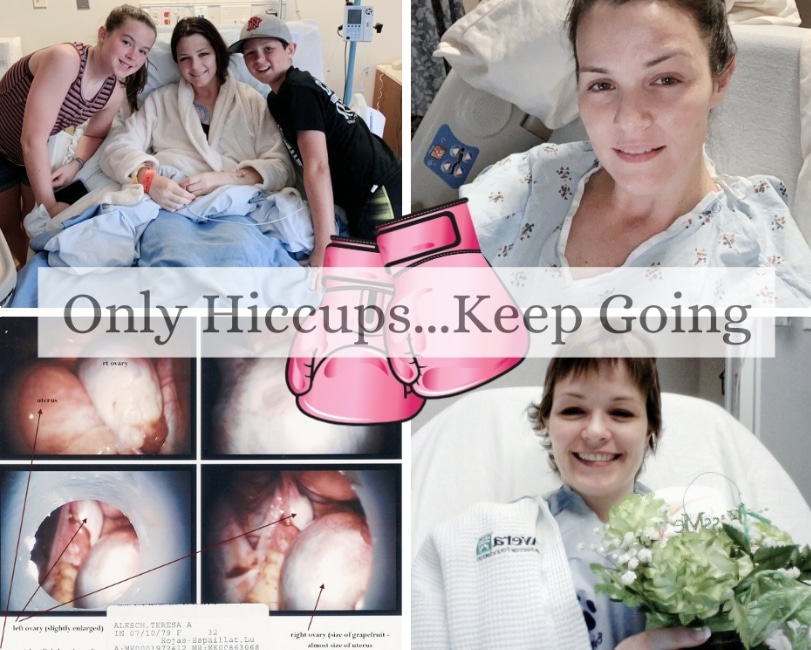
Looking back, we were blessed with a baby girl in 2007 and an unplanned baby boy in 2009. When I woke up from surgery, I leaned into those blessings more than ever because they had to take it all.
My ovaries housed grapefruit-sized tumors and my uterus was swollen. The tumors were benign; however, with the way estrogen attacks my body, my oncologists were not taking chances. Everything needed to go (a complete hysterectomy).
With my hormones in flux and everything catching up to me, a perfect storm storm was brewing. I needed it all to stop so I could catch my breath. Armor off, I was finally crying “UNCLE!” How tragically ironic this was…one year after my diagnosis (a few months after my hysterectomy), someone special to me (to all of us), our beloved Uncle Joe, passed away suddenly from a massive heart attack.
This was the kicker, the biggest blow of it all. Devastating at the time, between my cancer, my hysterectomy, all the side effects, and my father’s battle.
How did this struggle make you feel at your worst moments?
The hysterectomy and losing a loved one triggered my slip into depression. Deep depression. One that most, including myself, had no idea about because the one thing I was good at was putting on my mask each day.
I didn’t recognize it for what it was at the time. I just felt like a failure for not being able to manage my physical, mental, and emotional health. I was unraveling.
Take into account that almost immediately after that surgery, hot flashes flooded in—four to six per hour, refusing me sleep. Hot flashes alone are maddening and enough to drive a woman to insanity (aside from all the other symptoms). I brought a change of clothes to work with me, they were so bad.
For humans in general, without quality sleep, everything else deteriorates. Including being able to cope with adversity—physical, mental, or emotional. Cognitively, my abilities to concentrate, focus, and be productive tanked.
My energy plummeted. I began questioning my intellect. I felt guilty for not being “better” in every area of my life. In some ways, I was furious that life went on for everyone around me, meaning, I wanted to be like them. I wanted to be more oblivious, if that makes sense. I wanted life to go on for me, too.
Are you getting the picture? Struggling, I could never get my body, heart, and mind to be in the same place at the same time. I was trapped in my own mind. I would be at home, either working, worrying about work, or wishing I had gotten more done at work. If work was where my mind was, then I was missing out on the LIFE right in front of me.
And that life included my children at the tender ages of two and four, my husband and our relationship and livelihood, and of course my parents and our extended family.
Flip that. Then, I would go to work, and the thoughts would perseverate, beating me down for not being more present with my loved ones. It was an endless cycle and devastating battle. I was living in past regret and frustration. I was living in future fear and worry. I was living anywhere and everywhere…but the present. The shame and guilt that comes with that takes its toll.
Anxiety became exaggerated, depression deepened, and I began questioning not just my purpose, but also my competence as a leader, administrator, wife, and most importantly, a MOTHER.
I told myself things like, ‘no me is better than the me they all are getting (especially my kids),’ and ‘they would be better off if I were one day replaced.’ I was okay with that. Welcomed it. Because in my increasingly warped mind, it made perfect sense…it was what was best for them, for everyone. For me.
I had no idea who I was anymore. I began imagining or daydreaming the easiest way to go, to leave this life behind. When I created those mental movies in my mind, I imagined “peace” on the other side of it, and the desire to feel peace once again became stronger and stronger, until one day after dropping my kids off at daycare, I almost followed through with an attempt.
👉 Share your story: Help thousands of people around the world by sharing your own story. We would love to publish your interview and have a positive impact on the world together. Learn more here.
Was there a moment when you started to turn things around?
That was the moment. The moment when it was time to accept the shoes I’d been given and start walking, no matter how painful that was going to be. This part of my story is hard to tell. It took me an entire year to write this one chapter in my book, Broken to Brave: Finding Freedom from the Unlived Life. The chapter is the beginning of my book, but it’s called, “The End.” It’s how I introduce readers to my story.
Long story short, in a few brief breaths within my life’s journey, I found myself in my car with a bottle of pills. I don’t know if you believe in signs or messages from loved ones who have passed on, but something happened that I still struggle to process to this day. A beautiful cardinal landed on my passenger review window right in the “moment.” But it quickly flew away. So, although I thought it was a sign at first, I questioned if it was ever there at all.
Until it landed on the driver’s side rear-view mirror. I don’t know how to explain other than saying, at that moment, I woke up.
I had been numb for over a year. A waterfall of emotions flooded in. I realized that all of this (tragedy and pain) is not about me; it’s bigger than me.
And while I had been through hell, so many others have been and were going through, and will always be going through something so much worse. I knew in that moment, I needed to find my way back to my loved ones, to the present moment, and most importantly, to myself.
I needed to put the oxygen mask on myself before I could help anyone else. It would be a quest. And I knew it was going to be trying. But I needed to give it everything I had.
Needing help, I checked myself into a behavioral health center. Once there, I learned that my recovery would involve medication. I had been there and tried that (antidepressants), and I knew I wanted to try it without. So instead, I began seeing a therapist. The breakthrough was work but came when my therapist challenged me to tell my loved ones what I was REALLY going through.
I couldn’t. Instead, I cried. And cried. Although words come naturally to me, and I selectively journaled throughout my cancer journey, I couldn’t find the words to express my pain. This was my therapeutic turning point. The idea of unearthing that pain released the waterworks during that session.
For months, I had been denying the harsh reality of what my body went through, and how that impacted my sense of self, my hormones, my energy, my emotions, and my focus… I had been denying the loss of my uncle.
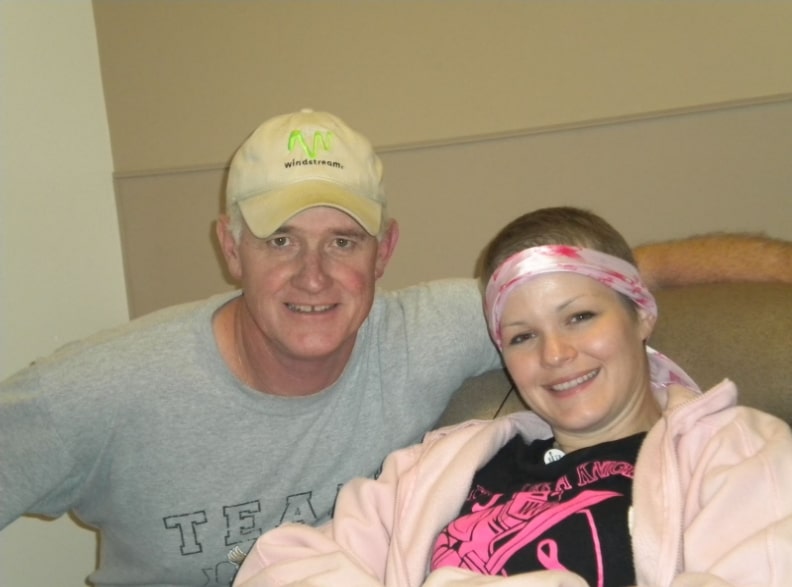
I know his passing hurt everyone. For me, the timing played a role. I grew up close to him, spending tons of weekends at his home, watching movies, making popcorn, and conquering Super Mario Brothers and Zelda. Uncle Joe was there for me always, especially during cancer, often taking me to chemo, radiation, my port surgery, and always with the family for the bigger surgeries.
I couldn’t accept that someone who was always there was no longer there.
For the first time, I was mourning his death. Seeing this opportunity, my therapist asked, “What if you told your story in the third person? Or write a piece about a character? Change her name. Tell her story.” And so I did.
When I shared this life-after-cancer story with my doctors, one suggested I publish it. Not just for inspiration but for survivors, future fighters, caregivers, and medical providers alike. Knowing people would know, I feared putting my “rock bottom” out there for people to read, and perhaps judge.
Would my competence be questioned? Could this “hot mess” perform at the levels required? Would I lose professional credibility? What if my closest family and colleagues felt responsible, like they had missed warning signs?
But those questions ultimately led me to find the value in sharing what I had been and was still silently battling through.
What if it could prevent someone else’s journey from taking the destructive twists and turns mine had? What if it could help caregivers and medical providers anticipate the road ahead and help the survivor navigate? What if MY journey could have been a little smoother because I had read or heard about someone else’s journey?
Before I knew it, I was on a path to publishing. Except. When my future publisher read my story about this “character who had been to hell and back,” he said it was great! Just not the story he wanted to publish. He said MY story needed to be told and then worked with me to make that vision a reality.
What steps did you take to overcome your struggle?
Quickly, before I get into the rainbow after the storm…
In addition to cancer’s aftermath, the surgeries, and all the medication, a host of auto-immune issues plagued me. From skin breakouts, to puffiness and discoloration in the face and eyes, to inflammation throughout the body to strange and unexplainable allergic reactions, to sinus infections and colds, to extreme fatigue and mental fog, to herniated discs, to further bouts with depression… my doctors (including oncology and specialist) could not get to the bottom of it all.
All of those symptoms added new levels of self-consciousness, frustration, depression, and anxiety, depending on the day. In 2019, oncology referred me to Palliative Care. I don’t know what you think of when you hear that terminology, but I think of “end of life” care. In essence, it means to sustain one’s quality of life.
What my doctors were saying was, “We can’t figure out what’s wrong… so, we want to involve some other specialists to at MINIMUM, sustain your quality of life.”
What I heard was, “We give up. Good luck.” I know that’s not the reality of the situation… or was it? I’ll never know.
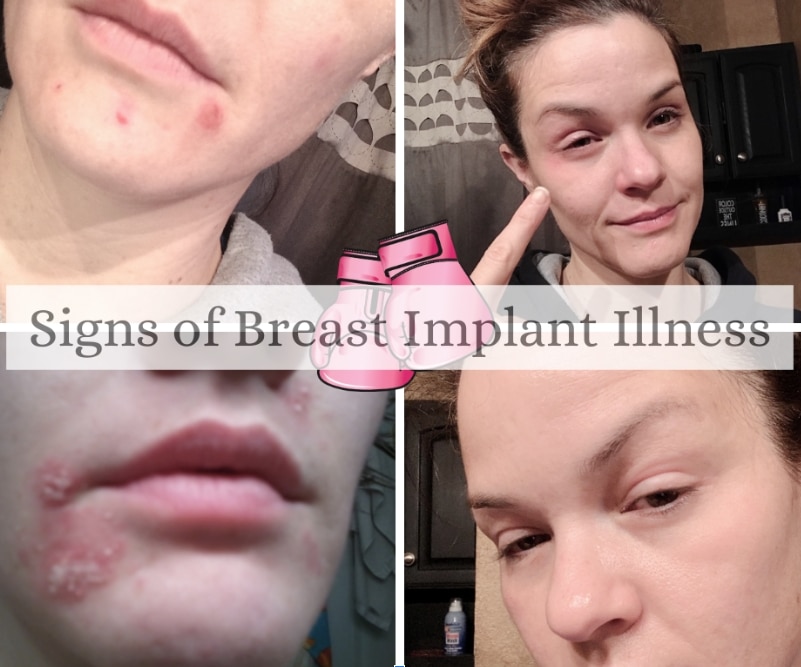
Back against the wall, I made the somewhat crazy decision at just 40 years old, to resign from my career in education to focus on my health and my family. So many people in my life, to this day, don’t know about this aspect of my journey.
By this point, I was starting to feel like a failure again; yet, I couldn’t accept that this was all the better I was going to feel. I knew if I wasn’t careful, hopelessness would start creeping in.
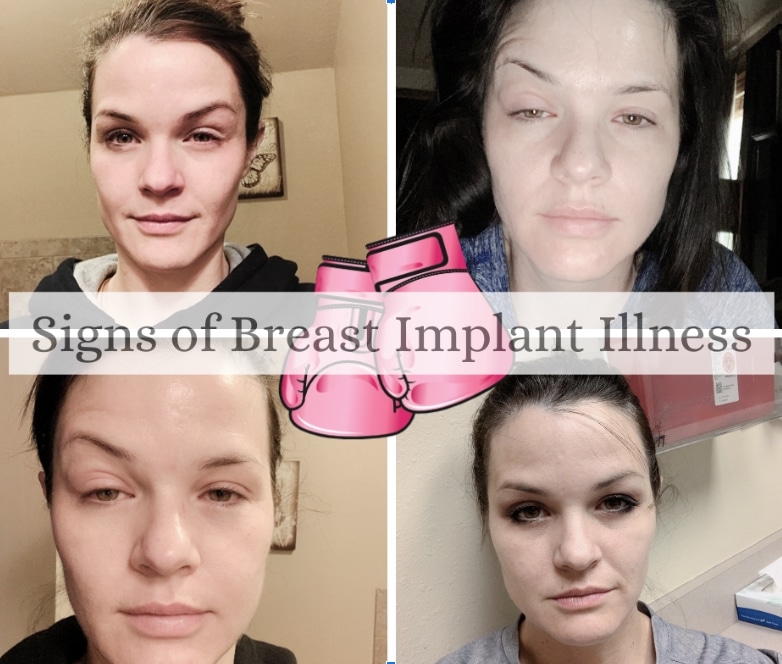
Another blessing. A few months later, my sister (who would soon face her own stage 3 cancer battle) stumbled upon a Facebook post that described my situation to a T.
I was rejecting the implants and needed them out, immediately. Three surgeries (explant plus DIEP flap reconstruction) proved to be the springboard to overcoming all of the autoimmune issues weighing me down. Lifesaving.
So, how did I find my way back to the present moment? And how did I begin rebuilding my spiritual, mental, physical, and emotional health? Outlets.
Creative outlet
Perhaps one of the most therapeutically impactful actions I took was writing my book. That outlet was crucial to my healing.
When the house was quiet, super early in the morning or in the evening after the kids went to bed, I would make some hot tea, light a candle, put my headphones on, play some calming and inspiring instrumental music, and either meditate, pray, or write.
Spiritual outlet
Faith carried me through a great deal. Not always in the traditional, “attend church every day and twice on Sundays” sense, but in connecting with God through prayer, music, and writing, as well as finding a sense of gratitude and calm in being content within the energy of my soul.
With this, I learned about the power of visualization and manifestation, and practiced all of the above.
Physical outlet
I turned to exercise and a variety of workouts, such as walking, running, Insanity, P90X, and CrossFit. I fought through fatigue and challenged my body to improve itself, regardless of the symptoms I faced. I also learned about and practiced breathwork to increase my energy throughout the day.
On days when I struggled, I didn’t chastise myself. I made a point to get some movement in, and I patted myself on the back for the small win in the bigger picture.
Self-development outlet
I enrolled in programs from motivational speaking to high-performance habits to writing and editing to entrepreneurial to educational leadership. I became certified in leadership, high performance, and life coaching programs, not just to be a better leader and manager at work, but also to better manage myself.
I put myself on stage and published my book to help others. Challenging my brain to learn something new made me feel as though I was gaining back my “it” factor when it came to my cognitive quickness.
High-Performance coach outlet
I worked with a high-performance coach who helped me to:
- Isolate what I could control and let go of what I couldn’t;
- Clarify my identity and vision for my future;
- Gather a baseline in 12 key life areas and set goals for where I wanted to be;
- Inspect my schedule and routines to increase productivity;
- Optimize my time by redefining my values and priorities, then aligning how I was spending my time with what was truly important to me;
- Review my habits (including self-limiting beliefs) and identify what was working and what wasn’t, removing what wasn’t serving me;
- Gradually build in high-performance habits to overcome my health issues and move toward optimal health and wellness.
When we inspect our thoughts, habits, and routines, we might find a great deal of misalignment that’s causing us to miss opportunities. I was trapped in this vicious cycle of living in past regrets and future worries, missing out on key moments and joy with my family.
Therapy outlet
The therapists I worked with were incredible (one was career-based, the other cancer). The most impactful strategy was writing my story from the third-person perspective. This freed me to explore my pain, but from a safe distance. In my book, I referred to this as “unlocking brave.”
Forgiveness outlet
Another key, the mortar to the bricks, was learning to give myself permission to fail, to fall off the exercise wagon, to feel crummy and just lounge all day on a Saturday, instead of cleaning the house, which desperately needed it, etc.
Taking time to rest, recover, and recharge when you feel like you should be working is incredibly challenging! But the work will be there. Let go of the guilt and shame. Life is too short. It’s not worth it.
Help outlet
Although accepting help sometimes felt unnatural, I needed it (my family needed), and we were surrounded by it. Whether family, friends, colleagues, students, or community, I had a wealth of people supporting me throughout my battles, from “D Day” and onward.
Without these inspiring and generous supporters, I don’t believe I would be here today, and be here as strong, healthy, and happy as I am. If you are reading this, you know who you are. THANK YOU.
Relationship outlet
This one is the most simple. Focus on and connect IN THE PRESENT moment with those who matter most. This is what life is all about.
We all know too well—people are with us one moment and gone the next, kids grow up before our very eyes, and if we aren’t careful, we might look back and realize that we were distracted with thoughts, activities, and work that didn’t matter. Live, love, and lead with purpose, and cherish your loved ones.
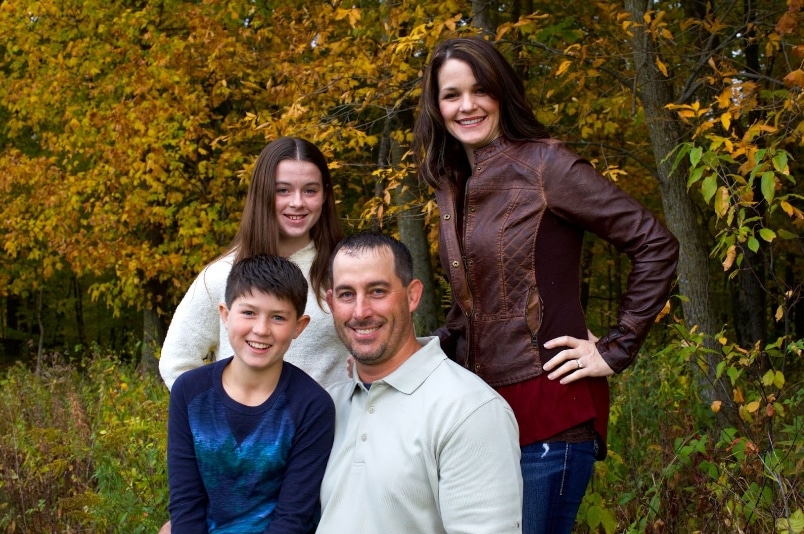
These outlets make up the initial bricks in rebuilding my life. Because it significantly improved my life, I layered in more high-performance coaching and continued learning breathwork and meditation for resetting and reenergizing myself. Recently, I’ve added ice baths (cold immersion) into my daily routine, giving the most shocking results of all!
Have you shared any of this with people around you in real life?
Yes, and no. I resisted because I wanted to be that unbreakable superhero. With loved ones, I didn’t want them to see or feel my pain. And sharing felt akin to admitting a decline in my cognitive abilities and thus accepting failure. It felt insurmountable.
There’s something else. Full transparency, I worried a few specific people would consider me a victim and talk behind my back. Spoiler. They did, and it hurt. But—their words were none of my business (which took me a long time to get). If you’ve experienced a similar conflict, remember:
- None of us are perfect; we are all human, flawed, and have weak moments where we think or say something hurtful, hold grudges, judge, gossip, etc.
- Someone else’s behavior says more about them than it says about you. It’s possible they are going through something that has nothing to do with you.
- It’s time to let it go. Broken relationships can be one of the most unexpected obstacles to happiness because the pain and hurt linger. Consider forgiving yourself and them, if even only in your heart.
- Your life’s path is yours. Theirs is theirs. Live and let live. Shine brighter to overcome any darkness creeping in, and fill your inner circle only with kind and uplifting people.
Over time and especially after the car incident, I became more authentically vulnerable and stopped sugarcoating. I told myself if I could help just one person, the journey and the fear of sharing would be worth it.
From my journal entries on Facebook and Caring Bridge to publishing my book to motivational speaking, I began receiving messages from people who were struggling. I knew I needed to continue sharing and owning “my ripple” (as in my impact on others).
If you could give a single piece of advice to someone else that struggles, what would that be?
SINGLE? Oh, jeez. LOL! My poor brain can’t narrow it down.
Helping others through their journeys helped me accept mine. It provided the key for me to walk through the door of true healing and physical, mental, emotional, and spiritual recovery. Life was not happening to me. It was happening for me to live, love, and lead with purpose. Ugh. I can’t limit it to just one.
The next key is in the two G’s—gratitude and grace. Finding gratitude in the small things shifts perspective, and giving ourselves grace (as opposed to self-destructive judgment) when we have human days and setbacks help us to stay the course.
The third key is accepting that to move forward, we have to move. We can’t take back control and move forward while in a passive state. We must take action—no matter how tired we feel, how much pain we are in, how scared we are, or how skeptical we are that we can feel better. It’s as simple as that.
Finally, each of us has one lifetime–that’s IT, just ONE! Although we don’t know how long that is, we each have the opportunity to make the most of it and be a positive force within our family, our community, and the world at large. We don’t want to look back and realize we missed life right in front of us. All we have to do is own our comeback and own our ripple.
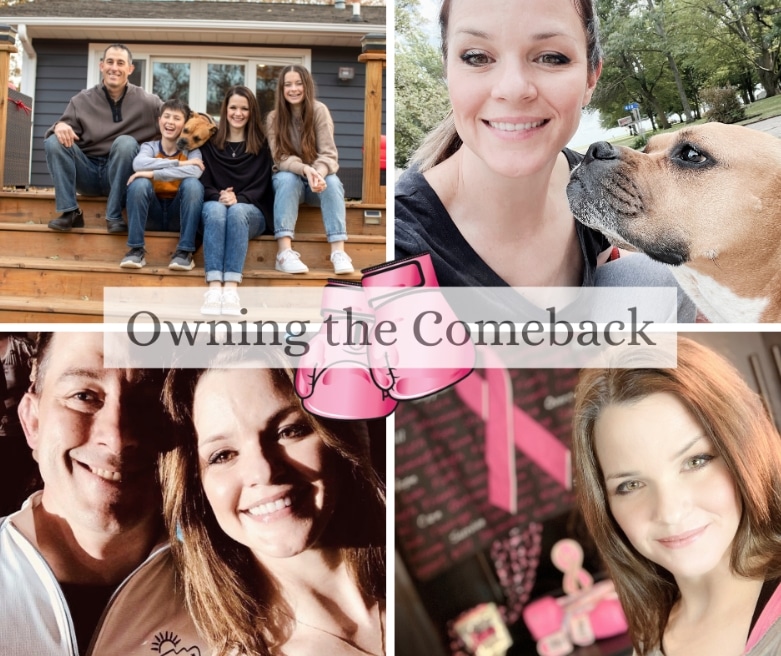
What have been the most influential books, podcasts, YouTube channels, or other resources for you?
So many books inspired me; however, it’s more than just the books! Most of these books led me to purchase their courses, conferences, and coaching. What you put in your mind is just as important as what you put in your body. Feed your body, mind, and spirit the good stuff. Immerse yourself in people, words, and wisdom that inspire you to move forward.
- High Performance Habits by Brendon Burchard: This has been the most impactful. It led me on a complete journey (from book, to course, to coaching) to not just performing but sustaining performance at high levels, leading to a sustained improvement in my overall health, well-being, productivity, and relationships.
- The Man on the Mountaintop by Susan Trott and Libby Spurrier: I loved this so much that I wrote a review. It’s an uplifting parable about modern-day pilgrims bringing a multitude of modern-day problems, sorrows, and grievances. It’s full of life lessons that had me giggling, crying, and shuddering, over and over again. I completed it in one sitting. I had to.
- The 5 Second Rule by Mel Robbins: This is a powerful technique to trick, or distract your brain rather, from procrastinating. There’s more to it, but in its simple form, count “5-4-3-2-1,” then do whatever it is you are putting off. Don’t think, just do.
- Make Your Bed by William H. McRaven: “If you want to change the world, start off by making your bed.” I walked away with a mantra and routine from reading this book. I originally watched his commencement speech, which this book delves deeper into the 10 core tenets he goes through. Essentially start the day out with a win, and everything else is a bit easier. It’s part of the reason I take ice baths every day!
- Your Secret Name & The Deeper Path by Kary Oberbrunner: With Your Secret Name, I learned to accept myself, for who I really am, despite the pain and despite the fear. With the Deeper Path, I delved into my purpose and owning who I am.
- The Introvert’s Edge by Matthew Pollard: This is more of a business book but it was powerful for me when I started retreating into my shell. It helped me with confidence and made me feel less alone. So, if you are someone who is in business or sales, this book could be helpful for you.
- Stress Less, Accomplish More by Emily Fletcher: Emily was my introduction to meditation. I started out with her book and then progressed to taking her online video course. It was incredibly powerful for me to learn how to slow down and disconnect (yet connect at a deeper and more meaningful level). It helped me to rest (take a powerful 5 to 15-minute meditation nap) during the day and get to a deeper sleep more quickly at night. I recommend the audiobook; she’s easy to listen to!
- Becoming Supernatural by Dr. Joe Dispenza: I became curious about Joe Dispenza’s (neuroscientist) work after seeing him on YouTube. He has a powerful story about the power of the mind and essentially healing himself after a serious injury paralyzed him and he found himself face down in a hospital bed for weeks/months. I learned about something he called Mind Movies and Walking Meditations.
- The Urban Monk by Pedram Shojai: This book helped me to get back to the basics. Regardless of the circumstances, and mine were pretty rotten at times, I worked toward grounding myself and resetting my nutrition, exercise, and sleep habits. It had all sorts of activities, exercises, and mediations. Just writing this makes me want to go through it again. I listened to this one on Audible.
- Change Your Thoughts, Change Your Life by Dr. Wayne W. Dyer: Wayne Dyer is an absolute joy to listen to. It breaks down the ancient works and wisdom of Lao-tzu, presenting it in a way that’s relevant to today’s modern world. It’s hard for me to put into words the peace, calm, and purpose I felt when listening to his books.
Where can we go to learn more about you?
Let’s connect wherever you spend your time! Fee free to send me a DM—just let me know you learned about me on Tracking Happiness!
- Teresa Alesch Website: You can learn more about my book, my story, and my life after cancer work here.
- Broken to Brave Book: You can go directly to it here on Amazon! 62 5-star reviews out of 62!
- Instagram: So much goodness coming.
- Facebook-Personal: Most active here.
- Facebook-Professional: My author, coach, and speaker page.
- YouTube: Just preparing to begin posting daily, starting with our ice bath journey! Feel free to follow along.
- The Live More Journey website: Coming soon (temporary holding page)! It is here that you will be able to learn more about our courses, coaching, and speaking.
- Stress Less Live More Free Facebook™ Group: Anyone looking for a community to learn and grow is welcome to join us!
Want more interviews?
Continue reading our inspiring case studies and learn how to overcome mental health struggles in a positive way!
Want to help others with your story? We would love to publish your interview and have a positive impact on the world together. Learn more here.

